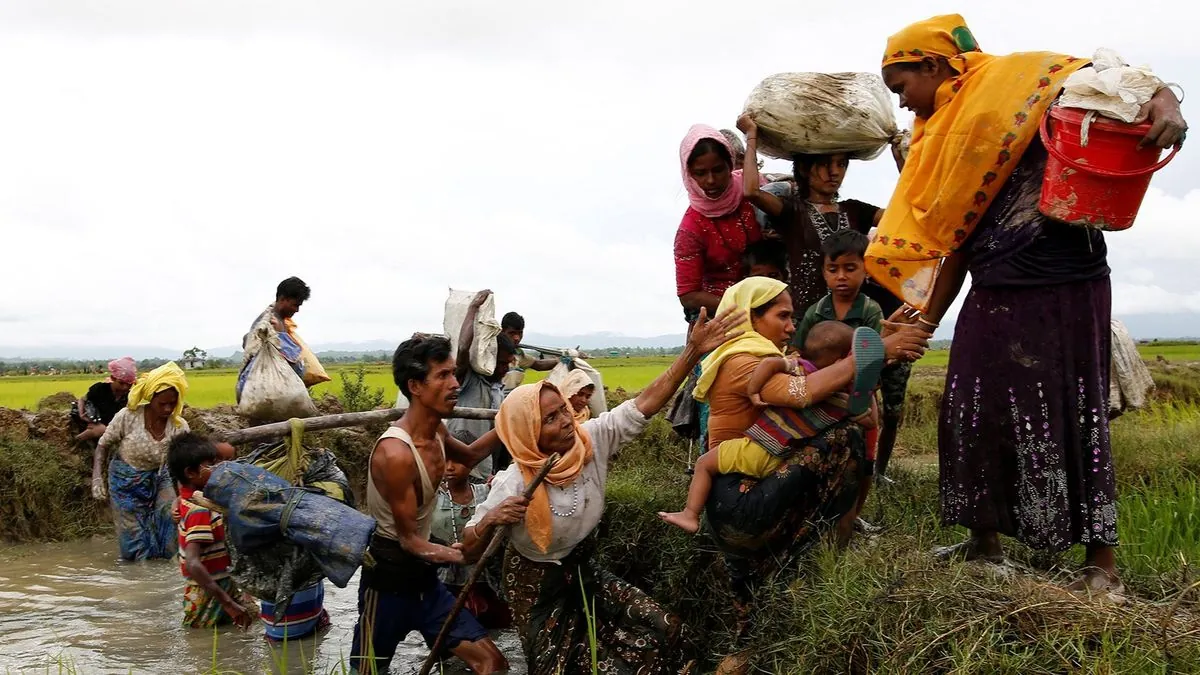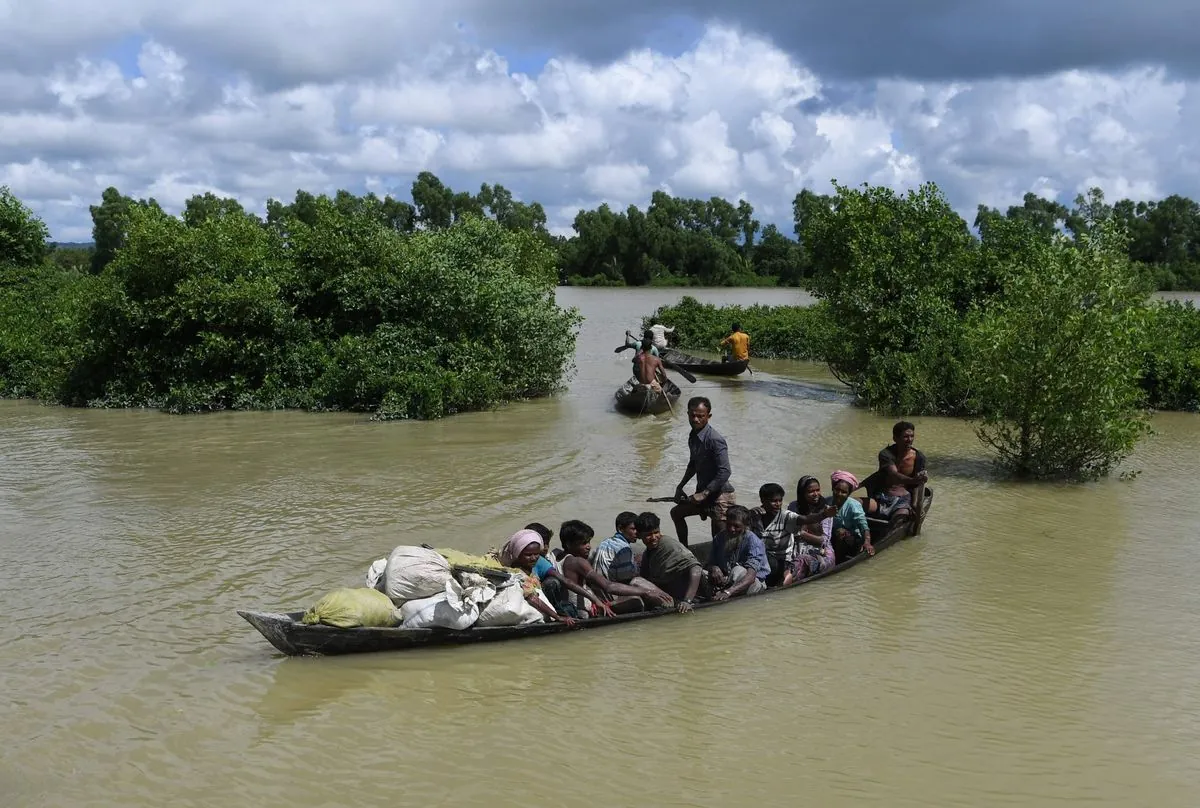Myanmar's Rohingya Crisis Deepens: Global Inaction Amid Escalating Violence
Myanmar's Rohingya face renewed violence from military and rebels, with global attention waning. The situation may be worse than the 2017 genocide, yet international response remains inadequate.

The plight of Myanmar's Rohingya minority has reached a critical juncture, with the situation potentially surpassing the horrors of the 2017 genocide. Seven years after the devastating events that saw 392 Rohingya villages razed and over 30,000 lives lost, the Muslim minority finds itself caught in a deadly crossfire between Myanmar's military junta and rebel forces.
Myanmar, formerly known as Burma, has been embroiled in civil conflict since gaining independence from British rule in 1948. The current crisis stems from a complex web of historical, ethnic, and political tensions that have plagued the nation for decades.
In 2021, General Min Aung Hlaing led a military coup, overthrowing the civilian government led by Aung San Suu Kyi. This action plunged the country deeper into turmoil, exacerbating the already precarious situation of the Rohingya people.
The Rohingya, primarily residing in Rakhine State, now face threats from multiple fronts. The military junta has launched air attacks on Rohingya homes, schools, and marketplaces, while also forcibly conscripting Rohingya men to bolster their ranks. Simultaneously, the Arakan Army, part of a rebel alliance fighting against the junta, has carried out attacks on Rohingya civilians.

A particularly harrowing incident occurred on August 5, 2024, when Arakan soldiers reportedly opened fire on fleeing civilians in Maungdaw Township. The violence extended to the Naf River, which forms part of the Myanmar-Bangladesh border, where drones and mortar fire targeted Rohingya attempting to escape, resulting in approximately 180 deaths.
"The situation for the Rohingya in Myanmar has deteriorated to levels unseen since the 2017 exodus. The international community must act swiftly to prevent further loss of life and provide humanitarian assistance to those in desperate need."
The global response to this escalating crisis has been alarmingly muted. International attention has shifted to other conflicts, such as those in Gaza and Ukraine, leaving the Rohingya's plight largely overlooked. This lack of focus is particularly concerning given the scale of the refugee situation, with over 1 million Rohingya currently seeking refuge in Bangladesh, primarily in Cox's Bazar, the world's largest refugee camp.
The United States, which had previously invested heavily in Myanmar's democratic transition, faces criticism for its delayed response. It wasn't until 2022 that the Biden administration officially labeled the 2017 events as genocide. Now, experts argue that more decisive action is needed to address the current crisis.
Proposed measures include:
- Increased support for Bangladesh's interim government
- Pressure on regional powers, especially China, to open humanitarian aid corridors
- Provision of satellite imagery to support International Criminal Court investigations
- Tightening of sanctions against Myanmar's ruling junta
- Addressing sanctions loopholes, particularly regarding jet fuel supplies
While the International Court of Justice and the International Criminal Court are investigating allegations of genocide, Myanmar's military leaders continue to reject these charges. They maintain diplomatic support from China and several Southeast Asian nations aligned with Beijing.
As the situation in Myanmar continues to deteriorate, the international community faces a critical test. The failure to respond effectively to the 2017 genocide must not be repeated. The lives of countless Rohingya hang in the balance, demanding urgent and concerted global action to prevent further atrocities and work towards a lasting solution to this protracted crisis.


































